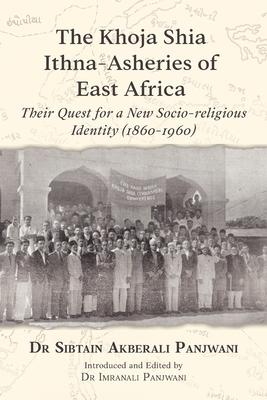The Khojas were generally regarded as part of the Indian Gujarati mercantile castes known as Lohanas and Bhatias who due to famine, as well as trading opportunities, migrated to Zanzibar in the 1830s and then to other parts of East Africa. They found themselves questioning their socio-religious identity amidst major struggles in the 19th and 20th centuries; living under British and German colonial rule, contending with the Omani sultanate and dealing with the proclamations of Aga Khan III who forbade interaction between Khoja Ismailis and Khoja Shia Ithna-Asheries. Their migration turned into a quest for faith, communal happiness and economic stability. In this extensively-researched work based on Gujarati sources, Dr Sibtain Panjwani captures 100 years of history of the early Khojas who migrated from India to East-Africa and initially were - arguably - a distinct blend of Hindu and Muslim being influenced by the Satpanth tradition.
Dr Sibtain Panjwani is a historian specialising in Khoja Shia Ithna-Asheri Muslim heritage. After obtaining qualifications in dentistry, law and medical ethics from the University of Manchester, King's College London and the University of Essex, he became the Secretary General of the World Federation KSIMC from 1997 to 2003. There he worked closely with Mulla Asgharali M M Jaffer focusing on the Khoja diaspora. He is the director of The Awakening Project(c) which focuses on Khoja community development and he delivers lectures on Gujarati exegesis of the Qur'an and Islamic bioethics.
Dr Imranali Panjwani is a Senior Lecturer in Law at Anglia Ruskin University and Head of Diverse Legal Consulting, UK where he writes country expert reports for asylum seekers.
